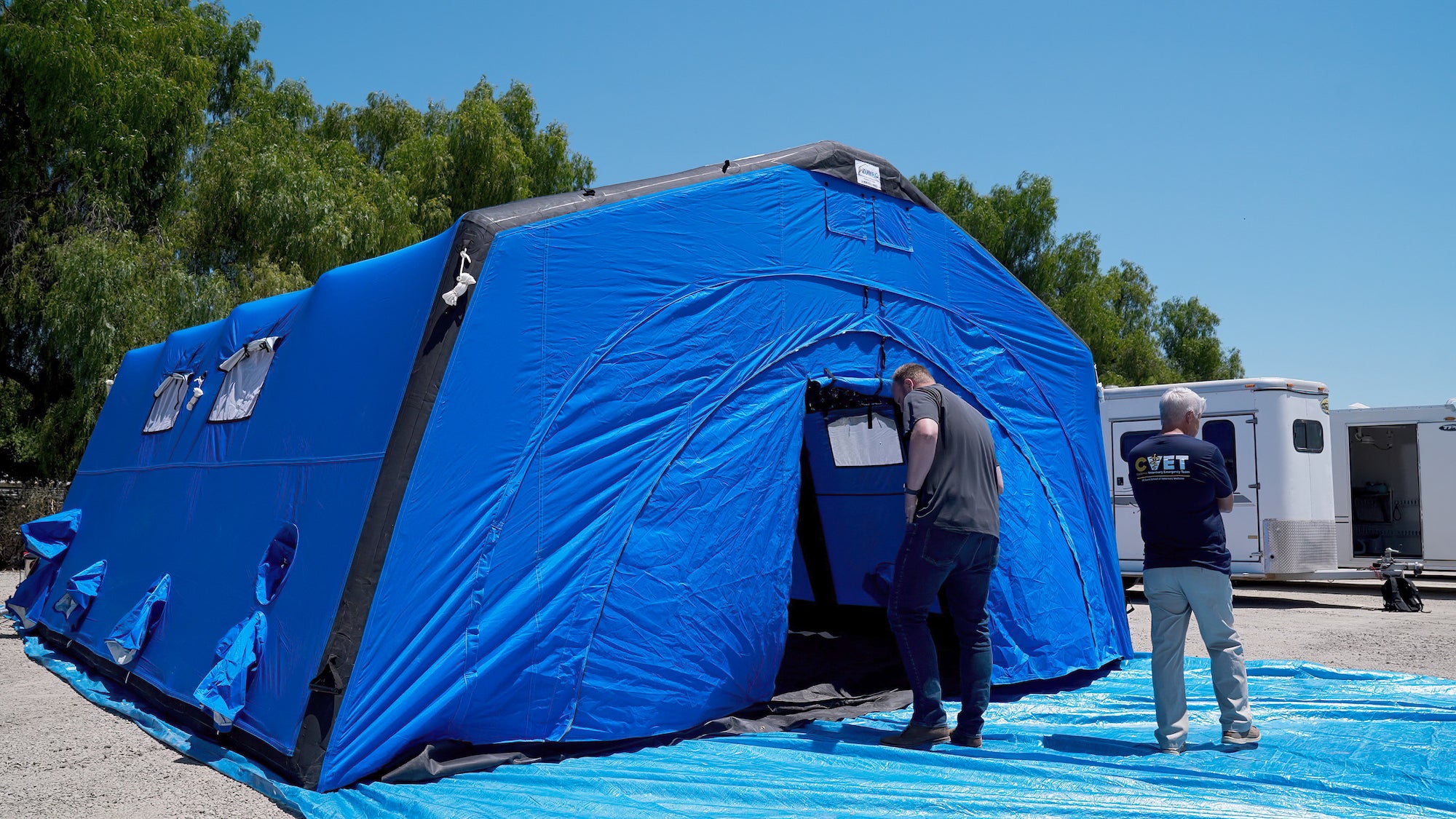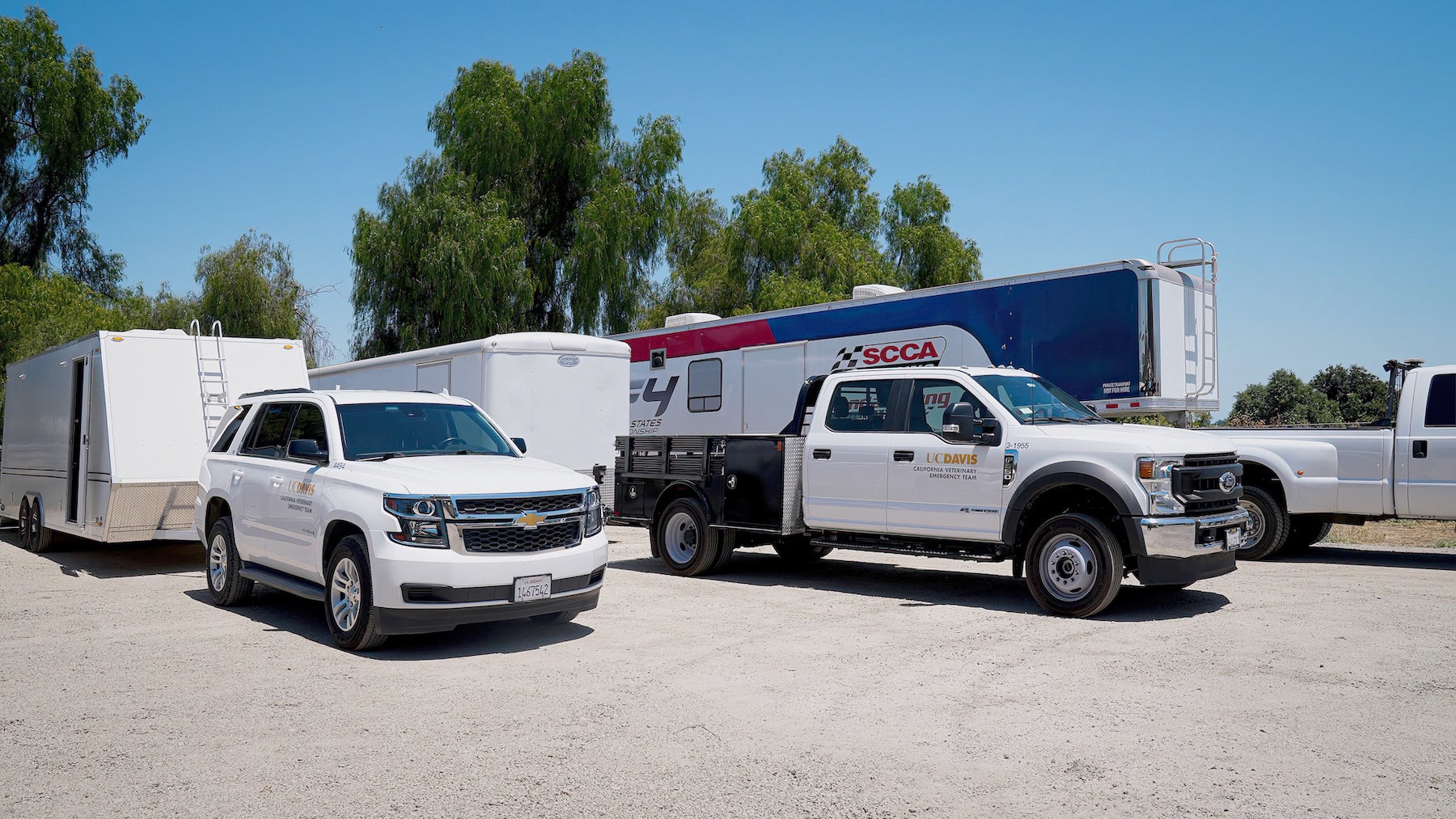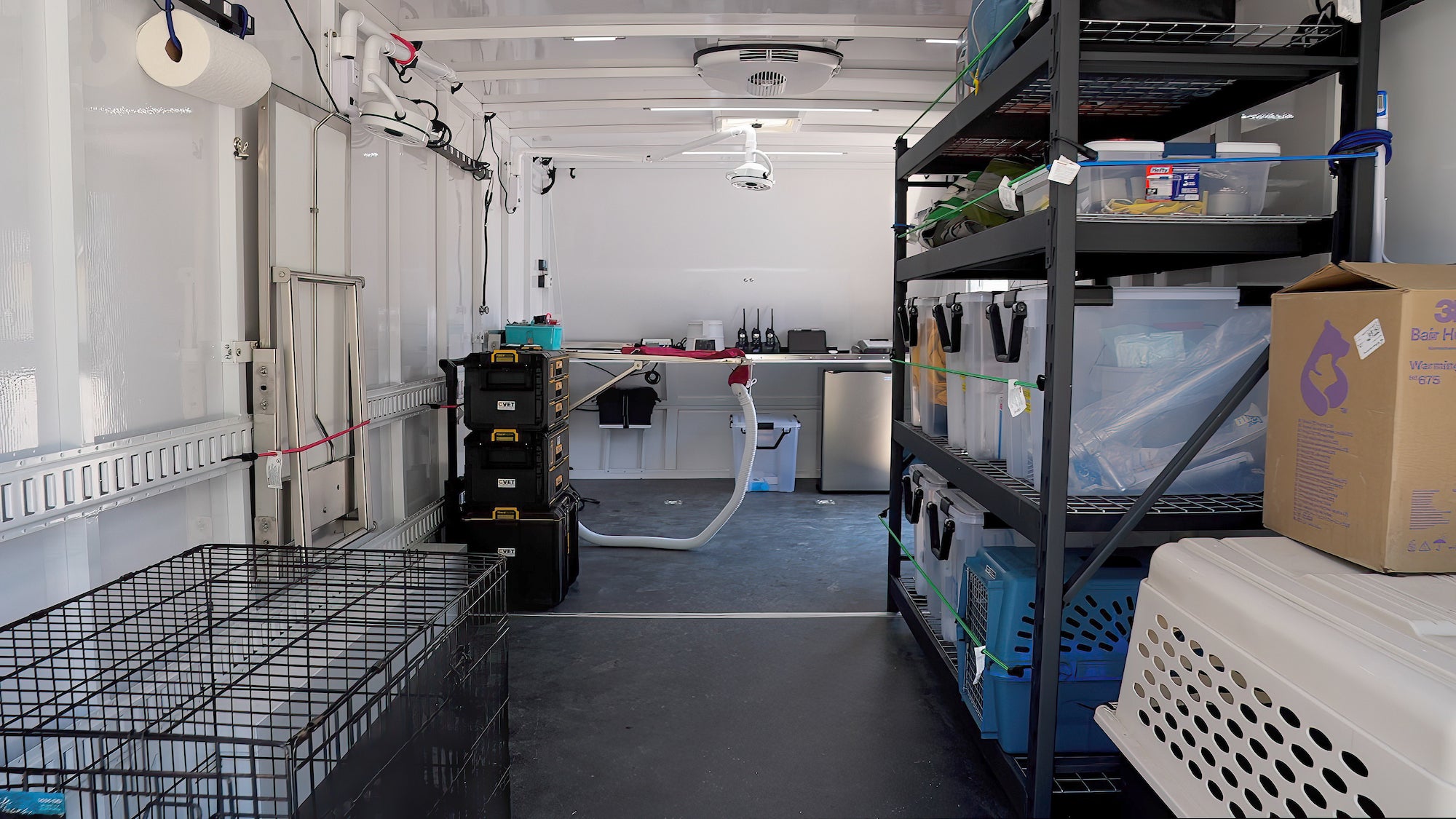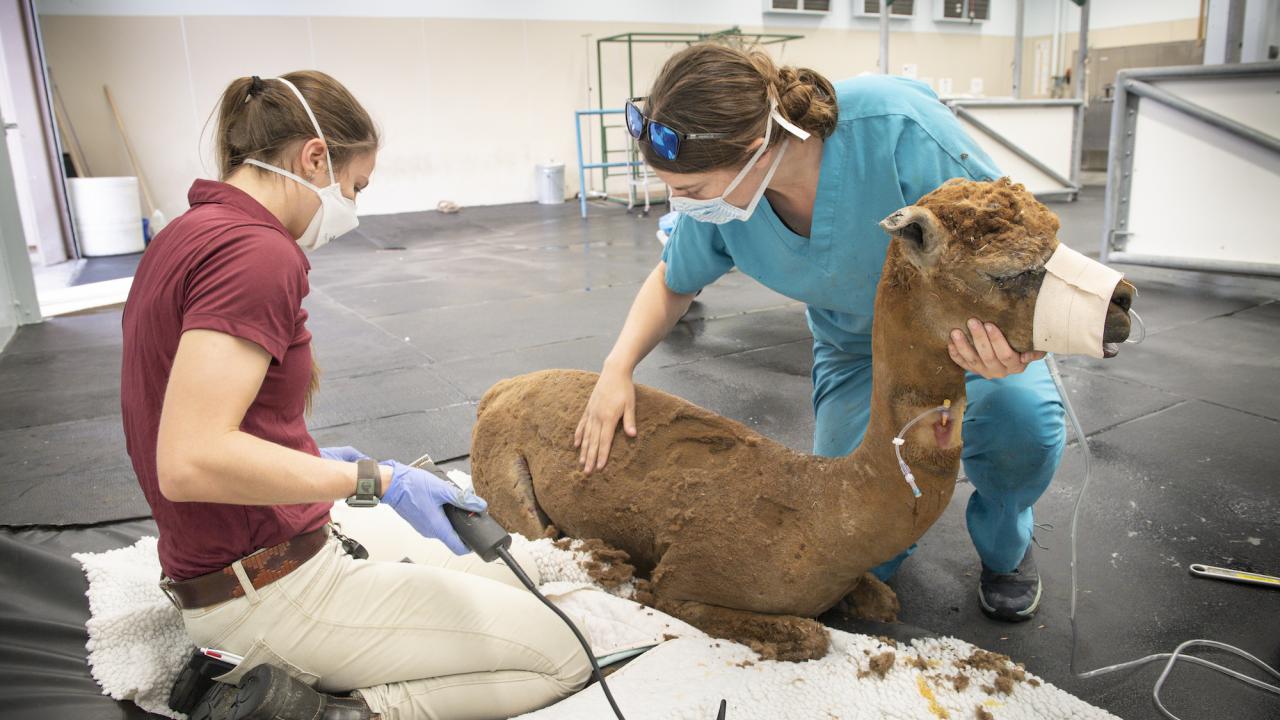Evacuating, sheltering and caring for animals are enormous tasks made more difficult in a state under siege from wildfires. But the California Veterinary Emergency Team, or CVET, is ready to lead a statewide coordinated effort to provide veterinary care when disasters like wildfires strike.
Administered by the One Health Institute at the University of California, Davis, School of Veterinary Medicine, CVET supports and trains a network of government agencies and organizations to aid domestic animals and livestock during emergencies.
This fire season, CVET is ready to assist counties across the state with veterinary rescue and care when local resources have been exhausted and state assistance is needed.
“We are 100 percent ready to deploy and respond should a wildfire or any other disaster require veterinary response or assistance,” said William Burke, associate director of planning for CVET.
A mobile command
Burke said CVET is equipped with 22-foot and 24-foot trailers that will serve as mobile in-field hospitals and exam rooms for injured animals, as well as a horse trailer and several vehicles. A 44-foot trailer is currently being retrofitted to provide additional exam space as well as sleeping quarters for veterinarians should the team be called to a remote location. The goal is to be as self-sufficient as possible, whether responding to wildfires, flooding or other disasters.


“Having ready-to-go resources on hand allows our veterinary team to show up with the resources they need to provide exceptional veterinary care in the field, treating burns, injuries, and other conditions as the need arises,” said veterinarian Ashley Patterson, associate director of operations for CVET.
Need for collaborative response
With an increasing need for coordinated veterinary care during emergencies throughout the state, the California Legislature passed a bill forming the new CVET in 2021. The team is modeled after the UC Davis One Health Institute’s Oiled Wildlife Care Network, or OWCN, which works with the California Department of Fish and Wildlife and more than 45 organizations throughout the state to help rescue and treat injured wildlife during oil spills. Its more than 1,600 active responders have cared for more than 10,000 oiled animals in more than 100 incidents since inception in 1994.
“The history of success of the OWCN has shown us the power of proactive partnerships with animal care professionals, scientific organizations, universities and governmental organizations,” said CVET Director Michael Ziccardi. “With dedicated individuals from all facets of a disaster working together on preparedness before a disaster hits, a coordinated and effective response can occur to save animals in crisis.”
Since forming, CVET has partnered with a variety of state agencies, nongovernmental organizations and veterinary medical associations. CVET works in close collaboration with California’s Office of Emergency Services, the California Department of Food and Agriculture, the California Animal Response Emergency System, the California Veterinary Medical Reserve Corps and many other response organizations throughout the state.

“We are grateful to the state, which has entrusted us with such an important public mission. Using our veterinary expertise to help prepare for and respond to disasters across California,” said Mark Stetter, dean of the School of Veterinary Medicine. “Although we hope to never see disasters, we know that when they come they can be devastating to our pets, horses and livestock. I’m glad that we are ready to help the next time there is a need.”
With the formation of CVET, the personnel, equipment, knowledge and legacy of the previous UC Davis Veterinary Emergency Response Team, or VERT, was folded into CVET. This expanded UC Davis’ veterinary disaster response capacity from a local county effort to a statewide response. UC Davis VERT typically triaged, evaluated, treated or rescued more than 1,000 animals every wildfire season.
Media Resources
Media Contacts:
- William Burke, CVET, wmburke@ucdavis.edu
- Michael Ziccardi, CVET, mhziccardi@ucdavis.edu
- Ashley Patterson, CVET, anpatterson@ucdavis.edu
- Amy Quinton, News and Media Relations, amquinton@ucdavis.edu 530-601-8077
